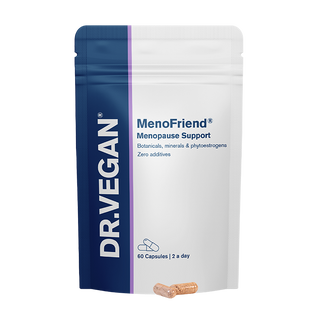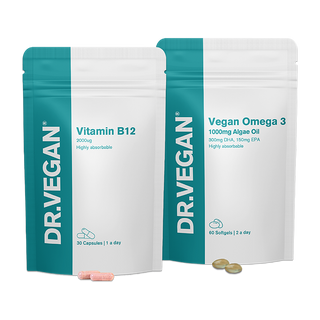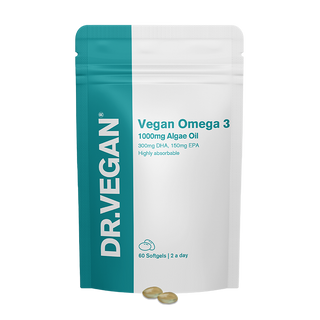Why algae omega 3 is better than fish oil

Omega 3 fatty acids, EPA (Docosahexaenoic acid), and EPA (Eicosapentaenoic acid) are essential for our body’s cellular function. They reduce the risk of adverse cardiovascular outcomes and cognitive function issues, and they are needed for regulation of inflammation throughout our body. Every nutrition practitioner agrees that omega 3 fatty acids are essential for health, and Omega 3 extracted from fish has traditionally been the supplement of choice. This is not surprising, because it is rich in EPA and DHA and readily used within the body, and extracting Omega 3 from fish has become an industrialised process, driving down costs. What most people don’t realise is that fish get their Omega from eating algae in the sea, so it always made sense for humans to also gain Omega 3 from algae, but until relatively recently, algae-derived Omega 3 hasn’t been widely available.
The good news is times have changed, and the decline in the old-school approach of using fish oil is not only helping save the environment; studies show that algae-based Omega 3 is probably better for you.
Bioavailability of algae omega 3
Research studies show that algae oil is just as effective as fish oil in elevating plasma DHA levels. A study published in the Journal of Functional Foods involved 31 healthy adults who consumed 600mg of DHA daily from algae or fish oil capsules over two weeks. The results demonstrated significant increases in DHA levels across all groups, with algae oil showing comparable - if not superior - bioavailability to fish oil. The study also showed that vegetarians and vegans with lower DHA levels also achieved a similar DHA status to omnivores after algae oil supplementation.
Cardiovascular benefits of algae omega 3
Algae oil's impact on cardiovascular health is the same as that of fish oil. A double-blind, parallel trial of people with hypertriglyceridemia split participants into three groups: one taking algae oil providing 2.4 g/day of DHA and EPA, another group taking fish oil with 2.0 g/day of these fatty acids, and a third group taking control oil, over a period of 14 weeks. Both of the algal and fish oil groups experienced significant reductions in triacylglycerol levels compared to the control group. The study showed no differences in the effects on triglycerides between the algae oil and fish oil groups, further demonstrating the effectiveness of algae oil in lipid management. Learn more in What is Omega 3 and what is it good for.
Purity and safety of algae omega 3
One of the major concerns with fish oil supplementation is the potential presence of contaminants, such as mercury and polychlorinated biphenyls (PCBs). Daily consumption of fish oil supplements exposes individuals to PCBs and PBDEs, which come with a whole new set of health consequences. Tests on fish oil supplements in the UK found small amounts of harmful chemicals called dioxins and PCBs. The levels varied, with some being lower and others being higher, but all fish oil was contaminated. Algae oil, cultivated in controlled environments, offers a purer alternative. Algae oil contains no PCBs, making it a much safer choice than fish oil.
You may also be interested in reading 'Why is Omega 3 important for perimenopausal and menopausal women?'
MenoFriend®

Sustainability of algae omega 3
The environmental impact of fish oil production is a growing concern, particularly due to overfishing and the disruption of delicate marine ecosystems. As healthcare professionals increasingly consider the sustainability of interventions, it's important to recognise algae oil as a clinically effective and environmentally responsible alternative. Microalgae—the source of Omega 3s in the marine food chain—can be cultivated sustainably with a minimal ecological footprint, and of course, without killing millions of fish and damaging marine ecosystems. Algae oil is a viable solution that can reduce dependency on marine life and support environmental conservation.
Overfishing driven by omega 3
Fish oil supplementation has historically been promoted for its health benefits. However, it has become a significant driver of overfishing, particularly because it relies on small fish such as anchovies, sardines, and mackerel. Among the most nutrient-rich in the ocean, these fish are now commonly farmed not for direct human consumption but to be reduced to fish oil. Demand for fish oil supplements increases pressure on fisheries which already compete with marine wildlife for these resources, and the fisheries contribute to the degradation of the ecosystems and disrupt marine food chains. This threatens food security in areas that depend on these fish for survival. While the major food conglomerates talk about their improvements in efficiency and substitution with by-products, the reality remains that high-value markets for supplements drive unsustainable harvest levels of forage fish.
Learn about 7 ingredients in supplements to avoid.
Plastic pollution and fish oil
Fishing-related debris significantly contributes to plastic pollution in our seas. Globally, it's estimated that fishing equipment used by industrial-sized trawlers prowling our oceans accounts for approximately 10% of marine plastic debris, translating to between 500,000 and 1 million tonnes entering the ocean annually. Some studies have found that fishing nets make up at least 46% of the plastic in some areas, including the Great Pacific Garbage Patch. Research shows that more than three-quarters of floating plastic debris in this region originates from fishing. These figures highlight the substantial impact of fishing practices on marine plastic pollution.
Oxygen vs carbon dioxide and omega 3
Algae oil production provides significant environmental benefits in the reduction of carbon and the production of oxygen. Algae absorb large amounts of carbon dioxide during photosynthesis and release oxygen. In fact, some algae species produce significantly more oxygen per acre than terrestrial forests. Algae proliferate with minimal land, water, and energy, making them highly sustainable. Algae oil production should be utilised as a tool for combating climate change and promoting the balance of the ecology.
Vegan Essentials Bundle

Algae Omega 3 is a choice for everyone
While algae oil is a popular choice for vegetarians, vegans as well as those with fish allergies, algae oil benefits everyone. Studies have shown that supplementing with DHA not only boosts DHA levels, but it can also lead to meaningful increases in circulating EPA. This is because the body slows the breakdown of EPA, which promotes accumulation when DHA is present. Since EPA can also convert into DHA, algae oil helps maintain a healthy Omega 3 balance. With its clean origin and a wide spectrum of benefits, algae oil is a wise choice for anyone looking to support their long-term health — no matter their diet.
If you're looking for an Omega 3 supplement made from algae oil, consider DR.VEGAN's Vegan Omega 3. Our high-strength Vegan Omega 3 is ethically and sustainably sourced from algae, in controlled environments, without damaging marine ecosystems and with no fishy smell. It contains 1,000mg Omega oil, provides the optimal dosage of 300mg DHA and 150mg EPA per serving.
In conclusion
Algae oil is a better option than fish oil, whether you’re interested in protecting the environment or not. It has the same biological activity as fish oil and is much better in other comparisons. Practitioners are also conscious of protecting their clients from the risk of supplements contaminated with PCBs and PBDEs that can be found in fish-based Omega 3 supplements. When combined with our responsibility for the sustainability of our world’s ecosystems, algae-based Omega 3 is the new, obvious choice, which doesn't result in overfishing and is beneficial for the oxygen / carbon dioxide balance in the air we breathe.
Discover our award-winning Omega 3, probiotics and vegan supplements.
You may also enjoy reading:
- Animal ingredients in supplements - what you need to know
- 3 big myths about supplements
- Why supplements ARE regulated
- Why you may be wasting money on Turmeric
References

















